How to Revise Vocabulary – Part 2
In the last blog we finished up by introducing you to some activities that can help when you’re revising vocabulary. The first activity was personalization and today we’re going to look at some further ways to revisit and reuse the vocabulary you have recorded. Let’s get going.
1. Mental Associations: The more associations you make, the easier it will be to remember expressions. For example, try to associate a collocation with a visual mental image (it could be a person, a film, a picture at home or a place you love).
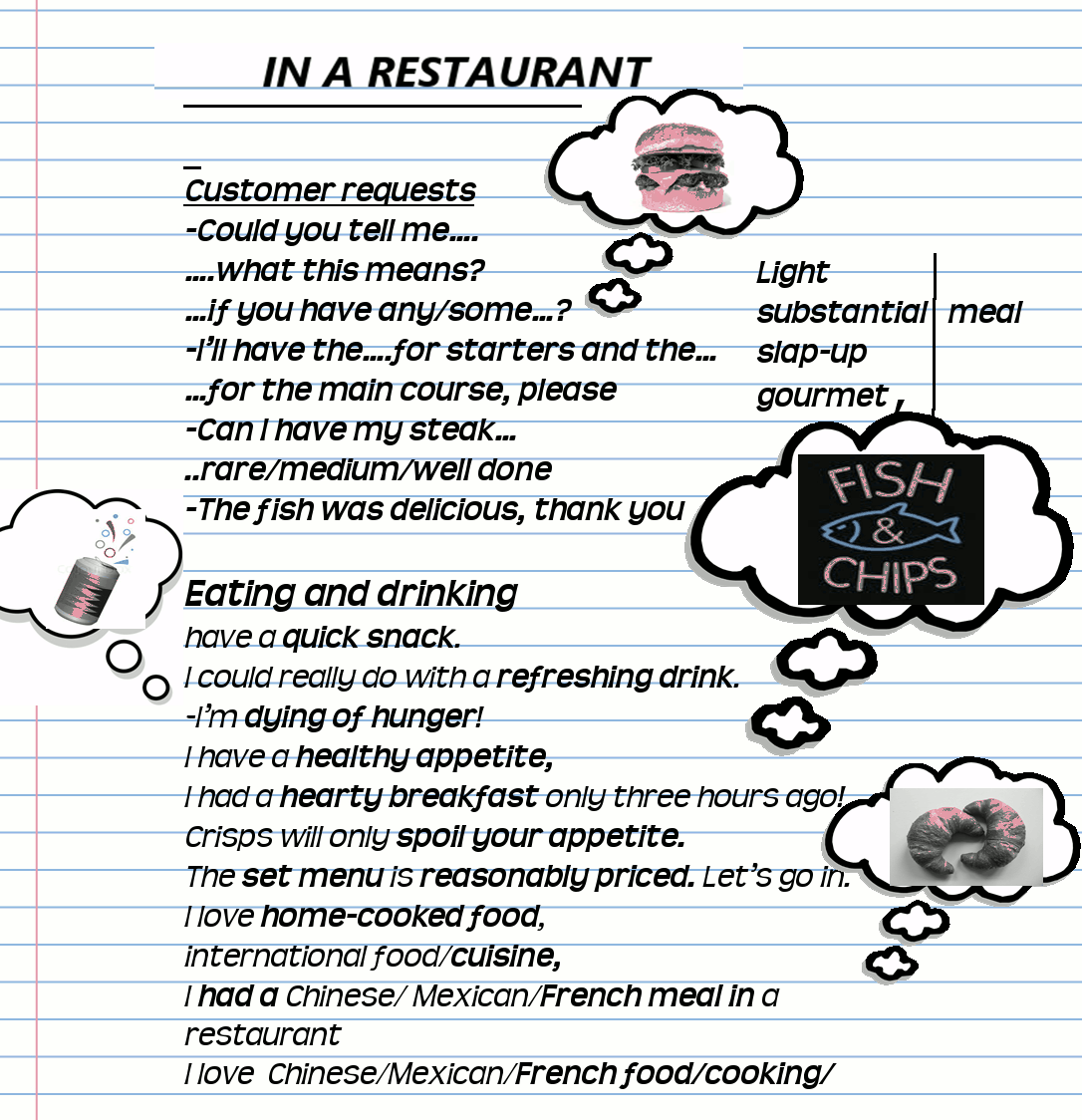
Try it!
2. Emotion: There are strong links between memory and emotion. If something makes you happy or sad, you remember it more. For example, how does the word or expression make you feel?
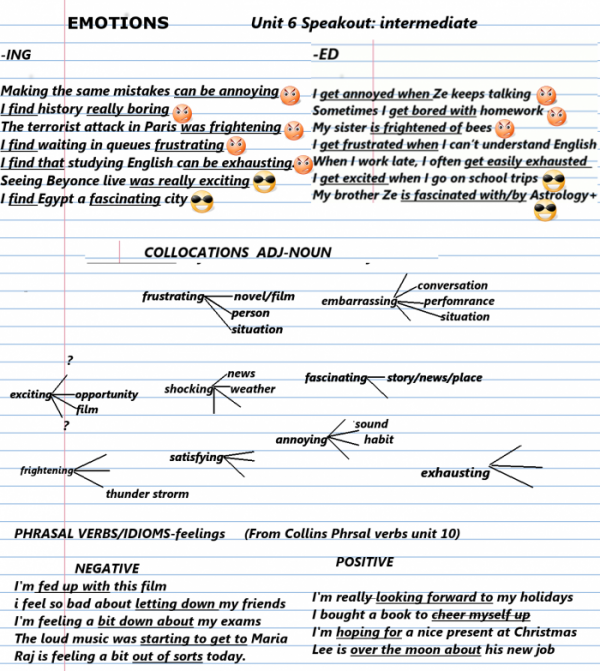
3. Decision-making: the more decisions you make about an expression, the better you will remember it. Below are a few tips on how to DO THINGS with your vocabulary.
- Match a collocation with something that rhymes with it. For example, to English speakers, “dying of hunger” sounds like “die younger”. What does it sound like in your language? It doesn’t have to make sense; it can be silly!
- You could decide what part of the speech or what type of collocation they are (verb-noun/adverb-verb collocation etc.)

- Try to use the expression in a complete sentence (I’m dying of hunger at the moment). Then think of where you would say it or who you would say it to.

(I’m dying of hunger.)
- Number or rate the expressions from 1 (favourite / most useful) to 5 (least favourite/useful). Then compare your list with a friend or classmate.
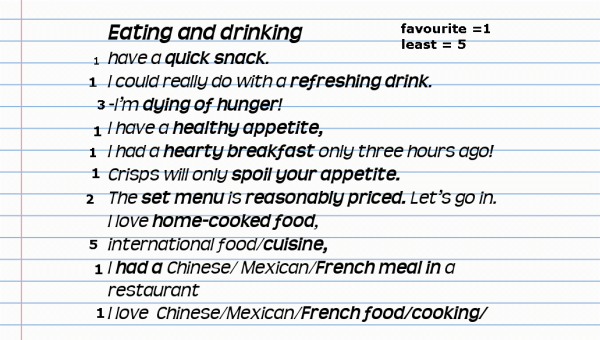
- You could also categorize the expression on your page according to where you would say it – at the bank, out with friends, etc. or who you would say it to or who you might say it about – your brother, a great artist, etc.

- Test you memory. Close the page. Can you write the expressions from memory?
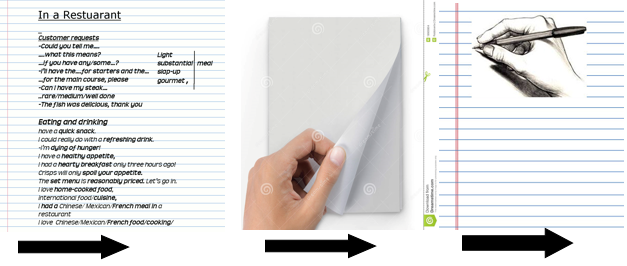
- Make yourself a gap-fill with the expressions. After a few days, return to them. Can you remember the missing word?
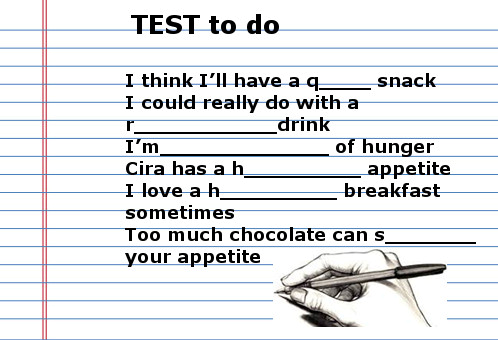
- Write questions with the expressions. You could then ask a friend these questions. Do they know the collocation? Can they answer the question?
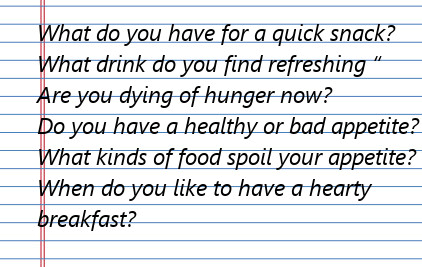
- Put your finger or hand over one side of the page, or sentence. Can you complete the sentence?
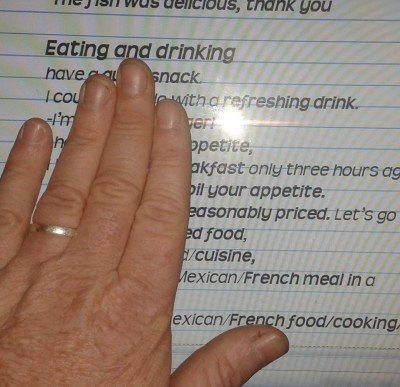
- Translate sentences or expressions into your own first-language. Then, after three days, return to your translation. Can you retranslate the sentence back into English again?

- Personal Practice: read a sentence aloud and repeat it to yourself. Don’t say it silently. Think of who you would say it to, or /where/why/when you would say it. What emotions and images do you associate with it?
- Finally, sit in a quiet place and ask another student or friend to test you on the expressions or collocations in your notebook.
And, after all that, just get out there and use your English – as much as possible, in as many different situations as possible. And enjoy yourself – making new friends, getting on at college or work, and, of course, keep learning, keep revising, and keep it personal.
Good luck!
